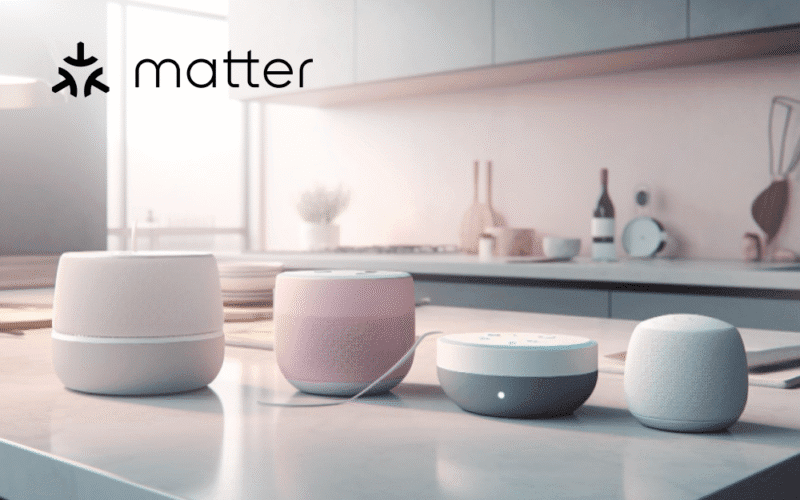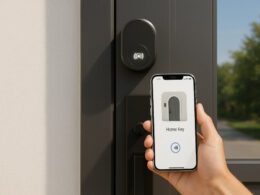The smart home revolution is accelerating, and at the heart of this transformation lies Matter—the game-changing connectivity standard that’s finally delivering on the promise of true device interoperability. As we move beyond the initial Matter 1.0 release, the latest iterations are bringing unprecedented capabilities that will fundamentally reshape how your smart home devices communicate and function together.
Matter has evolved significantly since its launch in 2022. Consequently, the Connectivity Standards Alliance (CSA) is continuously refining the standard through regular updates. While there isn’t a formal “Matter 2.0” release, the cumulative improvements through versions 1.1, 1.2, 1.3, and the recent 1.4 represent what many consider a second-generation leap in smart home capabilities.
What Makes Matter Revolutionary for Smart Homes
Universal Device Compatibility
The core promise of Matter is simple yet revolutionary: any certified device works with any compatible platform. Whether you’re using Apple HomeKit, Google Home, Amazon Alexa, or Samsung SmartThings, Matter-enabled devices seamlessly integrate across all ecosystems. This eliminates the frustration of discovering that your new smart lock won’t work with your existing voice assistant.
Moreover, Matter operates on IP-based networking, utilizing Wi-Fi, Thread, and Ethernet protocols to ensure robust local connectivity. This means that your devices can communicate directly within your home network without relying on cloud services. As a result, response times are faster and your privacy is enhanced.
Enhanced Multi-Admin Capabilities
One of Matter’s most significant recent improvements is Enhanced Multi-Admin functionality. This feature allows you to connect a single device to multiple smart home ecosystems simultaneously with just one authorization. For example, you can now add a smart thermostat to both Apple Home and Google Home without separate setup processes for each platform. Therefore, managing your devices across different systems has never been easier.
Latest Matter Updates: Energy Management and Beyond
Revolutionary Energy Management Features
Matter 1.3 introduced comprehensive energy reporting capabilities that enable real-time monitoring of power consumption, voltage, and current across all connected devices. This breakthrough allows homeowners to track energy usage patterns and optimize consumption, thus significantly reducing electricity bills.
In addition, the update brings support for Electric Vehicle Supply Equipment (EVSE), allowing you to control EV charging through your smart home platform. Consequently, you can schedule charging during off-peak hours, set charging limits, and integrate your vehicle’s power needs with your home’s overall energy management strategy.
Expanded Device Support
Recent Matter updates have dramatically expanded supported device categories:
- Kitchen appliances: Microwaves, ovens, cooktops, dishwashers, and range hoods
- Water management: Leak detectors, freeze sensors, rain sensors, and smart valves
- Energy systems: Solar panels, batteries, heat pumps, and water heaters
- Home network infrastructure: Matter-certified routers and access points
Furthermore, Matter 1.4 introduces Home Routers and Access Points (HRAP) certification. These devices combine Wi-Fi access points with Thread Border Routers, creating a unified network infrastructure that simplifies device connectivity and reduces network fragmentation.
Real-World Benefits for Your Smart Home
Streamlined Setup and Management
Gone are the days of juggling multiple apps for different device brands. Thanks to Matter, devices can be controlled through your preferred smart home platform, creating a unified control experience. The batch command functionality in recent updates allows controllers to send multiple commands simultaneously. As a result, this eliminates the “popcorn effect” where lights turn on sequentially rather than all at once.
Enhanced Security and Privacy
Moreover, Matter implements end-to-end encryption and secure device authentication protocols. The standard requires devices to undergo rigorous certification processes, ensuring they meet high security standards. Additionally, Matter’s emphasis on local communication reduces dependence on cloud services, which further enhances privacy protection.
Future-Proof Investment
With over 600 companies supporting Matter, including tech giants like Apple, Google, Amazon, and Samsung, your investment in Matter-enabled devices is protected against obsolescence. Furthermore, the standard’s open-source nature and regular updates ensure continued compatibility and feature enhancements.
Popular Matter-Compatible Devices Available Now
Major manufacturers have embraced Matter certification. For instance:
- Philips Hue: Complete lighting ecosystem with full Matter support
- Eve Systems: Comprehensive range of sensors and smart plugs
- Samsung Electronics: SmartThings hub and various appliances
- Google Nest: Thermostats, displays, and smart home hubs
- Amazon Echo: Voice assistants and smart displays
- Yale and Schlage: Smart locks with advanced security features
According to industry research, more than half of key smart home devices will ship with Matter support within the next five years. Therefore, getting in early can give you access to the most seamless smart home experience.
Looking Ahead: The Future of Smart Home Connectivity
2025: A Pivotal Year for Matter
Industry leaders have declared 2025 as a crucial year for Matter adoption. The CSA is working closely with the Thread Group and Wi-Fi Alliance to address connectivity issues and improve Thread integration in routers. Additionally, Apple and Google are sharing implementation data with partners to optimize device performance across different scenarios.
Emerging Capabilities
Future Matter updates will likely include:
- Advanced sensing technologies including radar and vision-based sensors
- Expanded appliance categories with more sophisticated automation features
- Improved battery optimization for wireless devices
- Enhanced scene management capabilities for complex home automation
As a result, these advancements will make smart homes smarter and easier to manage than ever before.
Making the Transition to Matter
For Beginners
If you’re new to smart homes, start with essential devices like smart lights, plugs, and thermostats from major manufacturers offering Matter support. These provide immediate benefits while establishing the foundation for a more comprehensive smart home ecosystem.
For Advanced Users
On the other hand, if you’re an advanced user, focus on Thread-enabled devices and consider upgrading to Matter-certified routers to optimize network performance. Moreover, leverage the multi-admin capabilities to integrate different ecosystems and create sophisticated automation routines spanning multiple platforms.
Conclusion
Matter represents the most significant advancement in smart home technology since the concept’s inception. While adoption is still gaining momentum, the standard’s continuous evolution through regular updates demonstrates a commitment to solving real-world interoperability challenges.
Indeed, the cumulative improvements across Matter versions 1.1 through 1.4 effectively constitute a “2.0” level transformation in smart home connectivity. As more manufacturers embrace certification and platforms enhance their Matter support, 2025 promises to be the year when truly seamless smart home experiences become reality for mainstream consumers.
Therefore, whether you’re building your first smart home or upgrading an existing setup, Matter-certified devices offer the best path forward for a future-proof, interoperable connected home that actually works as promised.









